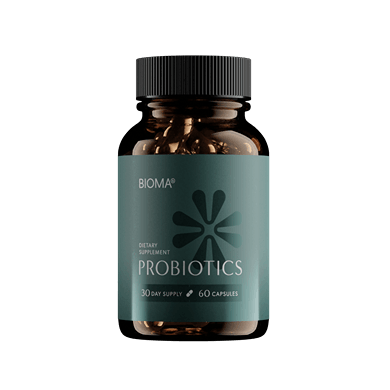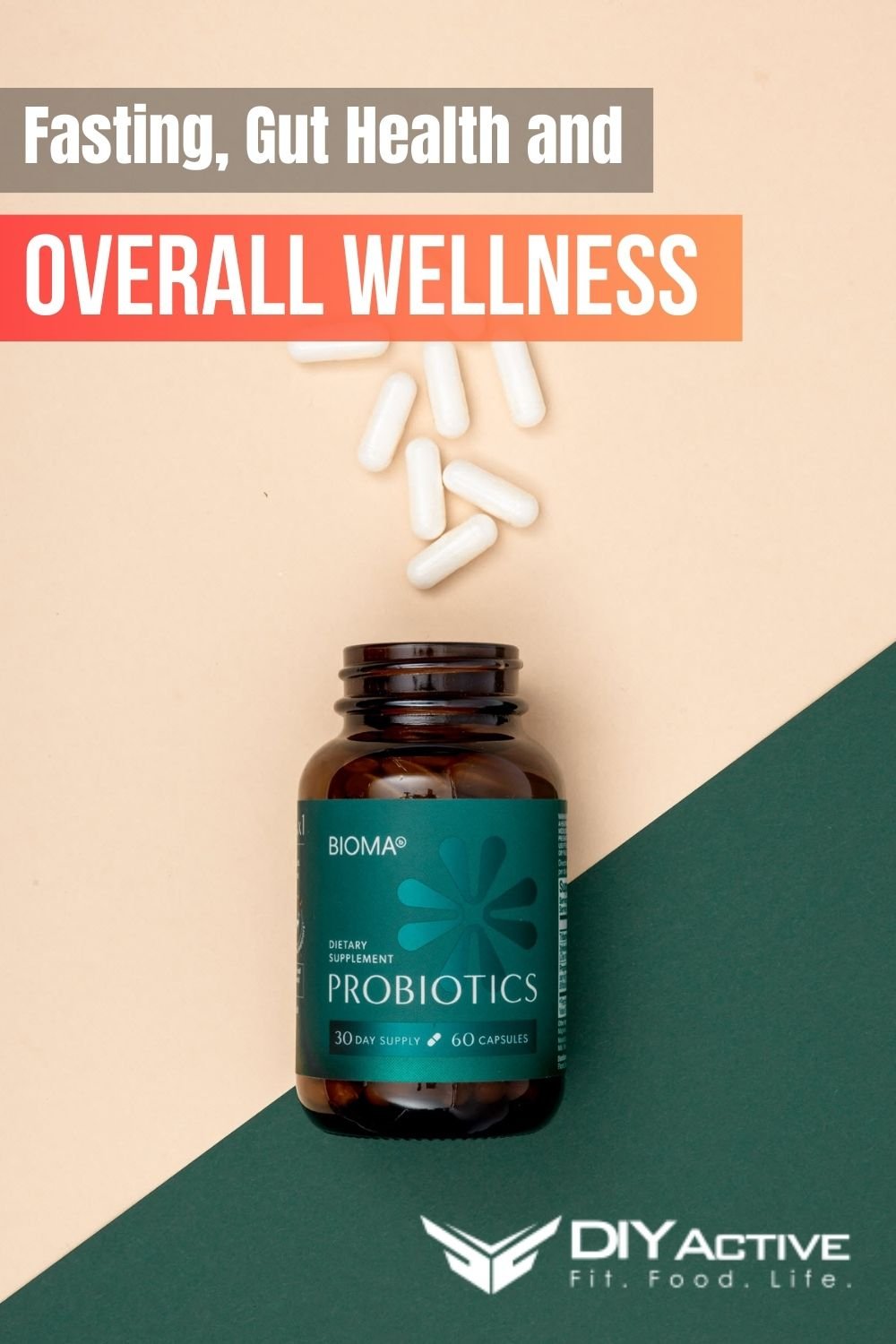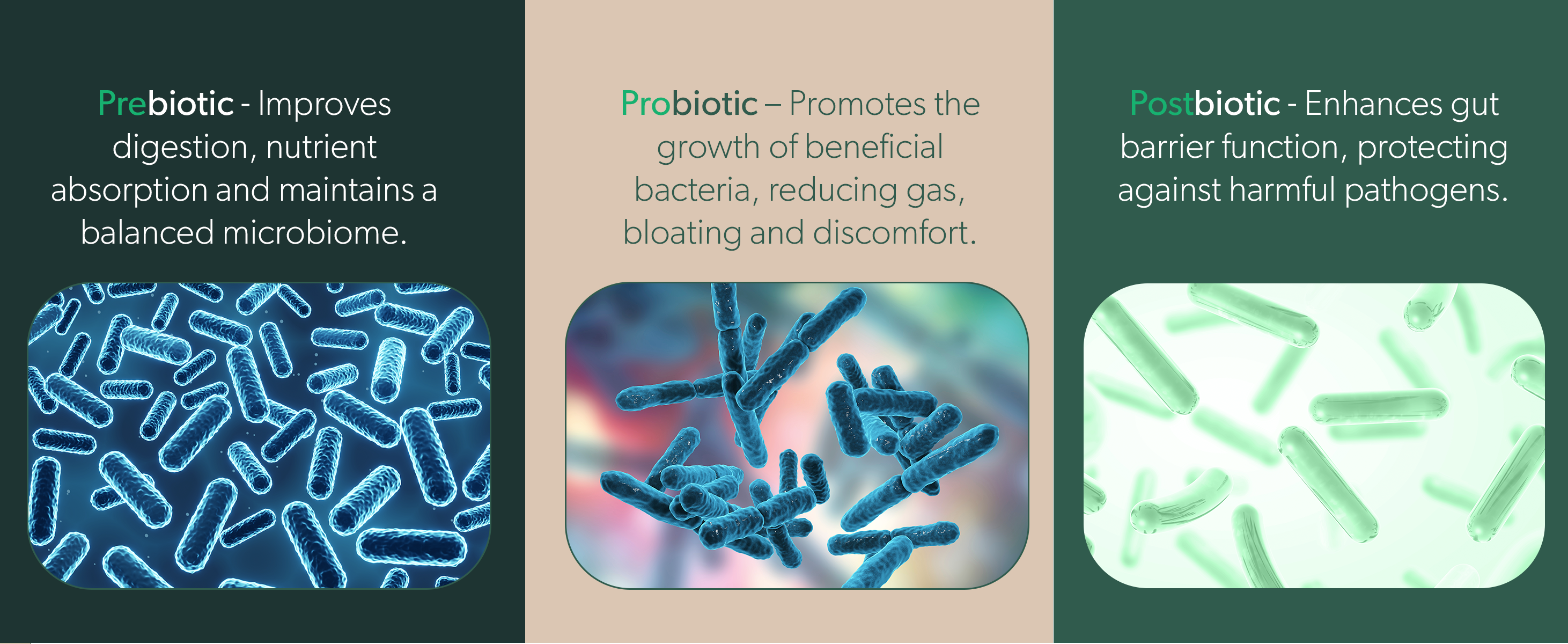
This post may contain affiliate content from which we earn a small commission at no additional cost to you. Read our full disclosure.
Intermittent Fasting: Impact on Gut Health and Overall Wellness
Intermittent fasting is more than just a weight loss strategy; it’s a lifestyle choice that can significantly impact your overall health, particularly the health of your gut microbiome. This pattern of eating involves alternating periods of fasting and eating, which not only helps manage body weight but also plays a crucial role in influencing the composition and function of the gut bacteria.
The Key to Gut Health and Dietary Success
As we begin to understand more about the profound connection between our diet, fasting, and gut health, it becomes clear that the timing of our meals can be just as crucial as what we eat.
What is the Microbiome?
The human microbiome comprises a vast and complex community of bacteria, viruses, fungi, and other microorganisms residing both on and within your body, with a significant concentration in the gut.
This intricate ecosystem is crucial to several aspects of health, influencing digestion, immune function, mood, and mental health. The gut microbiome is particularly vital, playing a pivotal role in processing nutrients from our food, safeguarding against harmful pathogens, and helping regulate the body’s immune responses.
Understanding the microbiome’s functions highlights its importance in maintaining overall health and underscores the need to nurture our internal microbial communities.


Bioma Probiotics - 75% Off Discount Code
How Does Diet Affect the Gut Microbiome?
Diet is one of the most significant influences on the composition and health of the gut microbiome. The foods you consume can rapidly alter which bacteria thrive in the gut. Diets rich in fibers from fruits, vegetables, and whole grains encourage the growth of beneficial bacteria that support digestion and overall health.
These good bacteria can break down fiber into short-chain fatty acids that nourish gut cells, reduce inflammation, and help regulate the immune system. In contrast, diets high in processed foods and sugars can increase the abundance of harmful bacteria associated with various diseases, including obesity and inflammatory bowel disease.
Maintaining a diverse diet is crucial for fostering a robust microbiome, which can enhance resistance to infections and chronic diseases.
Intermittent Fasting Effect on the Gut Microbiome
Intermittent fasting, characterized by alternating cycles of eating and fasting, has profound impacts on the gut microbiome. This dietary practice modifies the gut environment, significantly promoting the diversity and balance of bacterial species. Such microbial diversity is crucial as it enhances the body’s metabolic processes and improves the regulation of gut bacteria, leading to a more efficient digestive system.
Research has shown that intermittent fasting can stimulate the growth of beneficial bacteria that are essential for good metabolic health. These beneficial bacteria can improve the body’s ability to process sugars and fats, making metabolism more efficient and reducing the risk of metabolic diseases like obesity and diabetes.
Additionally, intermittent fasting suppresses the growth of potentially harmful bacteria that contribute to systemic inflammation. Reducing these inflammation-inducing bacteria can lower the levels of chronic inflammation in the body, which is associated with a range of health issues, including autoimmune diseases and heart conditions.
The beneficial effects of intermittent fasting on the gut microbiome continue beyond metabolic and inflammatory responses. This alteration in the microbial landscape can also enhance the overall immune system, contribute to better heart health, and potentially increase longevity. The changes brought about by intermittent fasting can also help protect against various chronic diseases, promoting improved digestive health and general health and well-being.
It’s important to understand that the influence of intermittent fasting on the gut microbiome offers significant health advantages, making it a compelling component of a health-conscious lifestyle.
Balance of Gut Bacteria
Maintaining a balanced population of gut bacteria is essential for overall health. When harmful microbes outnumber beneficial ones, it can lead to a variety of health problems, including irritable bowel syndrome (IBS), obesity, type 2 diabetes, and even mental health issues.
To support beneficial gut bacteria, it’s crucial to eat a diet rich in fiber and low in processed foods. Fiber acts as a prebiotic, fueling the growth of good bacteria and helping to sustain a healthy gut environment. Including fermented foods like yogurt and sauerkraut in your diet also promotes the abundance of these beneficial microbes.
Beyond diet, lifestyle factors play a significant role in the balance of gut bacteria. Managing stress effectively and ensuring adequate sleep are key components that influence the well-being of your gut microbiome. Combined with a nutritious diet, these elements help maintain a healthy balance of gut bacteria, which is vital for preventing disease and promoting overall health.
Symptoms of Bad Bacteria in the Gut
The presence of an excess of harmful bacteria in the gut can manifest in a variety of symptoms, significantly impacting both physical health and emotional well-being. Here are some common signs:
- Digestive Discomfort: An imbalance in gut bacteria often leads to noticeable digestive issues. Symptoms such as bloating, gas, constipation, and diarrhea are frequent indicators that the microbial balance in the gut is off. These symptoms occur because harmful bacteria produce metabolic by-products that can irritate the intestinal lining and disrupt normal digestive processes.
- Frequent Infections or Antibiotic Use: Bad bacteria in the gut can predispose individuals to more frequent gastrointestinal infections, which may require antibiotic treatment. While antibiotics effectively kill bacteria causing infections, they also indiscriminately kill beneficial gut bacteria, potentially worsening the microbial imbalance.
- Chronic Fatigue: Persistent fatigue may arise from poor gut health. When harmful bacteria dominate, the efficiency of nutrient absorption can decrease, and the body may not receive the vital energy it needs from food. Furthermore, a disrupted microbiome can lead to systemic inflammation, further contributing to feelings of tiredness and lethargy.
- Mood Disturbances: The gut is often called the “second brain” due to its extensive network of neurons. An imbalance in gut bacteria can affect the production of neurotransmitters like serotonin, predominantly produced in the gut. Low levels of serotonin are associated with mood disorders such as depression and anxiety.
Recognizing these symptoms as potentially linked to the gut microbiome is crucial for addressing underlying issues. Simple diet changes, probiotics, and lifestyle adjustments can help restore balance and alleviate these symptoms.


Bioma Probiotics - 75% Off Discount Code
Why Pre and Probiotics are Important
Prebiotics and probiotics are key to maintaining a healthy gut. Here’s how they each play a crucial role:
Prebiotics are a type of dietary fiber that the body cannot digest. They act as food for probiotics, helping these good bacteria to grow and flourish in your digestive system. This supports a healthy balance in your gut’s ecosystem.
Probiotics are live beneficial bacteria that are similar to those naturally found in your gut. You add more of these good bacteria to your digestive system when you consume probiotics. They help with digestion, boost your immune system, and maintain gut health by balancing the microbial environment in your intestines.
Using prebiotics and probiotics together is beneficial because they work synergistically to promote healthy gut flora. This synergy is essential for:
- Efficient Digestion: A well-balanced gut microbiome helps the body to break down food more effectively, absorb nutrients better, and eliminate waste more efficiently.
- Immune System Support: A healthy gut protects against pathogens and can influence the body’s immune responses, reducing the risk of infections.
- Disease Prevention: Maintaining a balanced gut flora can help prevent chronic diseases like obesity, diabetes, and heart disease by influencing various bodily functions, including metabolic and immune responses.
Including prebiotic-rich foods (like onions, garlic, bananas, and asparagus) and probiotic-rich foods (such as yogurt, kefir, and sauerkraut) in your diet, or taking supplements that contain these can significantly improve your gut health and overall wellness. This approach enhances digestive health and contributes to a stronger immune system and a lower risk of many health issues.
Synbiotics that Thrive Good Gut Bacteria
Synbiotics represent an advanced category of dietary supplements specifically designed to support and enhance gut health. These innovative formulations combine prebiotics and probiotics – the former being dietary fibers that nourish beneficial bacteria and the latter being live beneficial bacteria. By integrating both components, synbiotics ensure that the probiotics not only survive the harsh conditions of the gastrointestinal tract but also thrive once they reach the gut.
The symbiotic relationship between prebiotics and probiotics in these supplements is key to their effectiveness. Prebiotics serve as food for probiotics, promoting the growth and activity of these beneficial microbes once they colonize the gut.
The presence of prebiotics ensures that the probiotics have the necessary resources to establish a strong, healthy presence in the gut microbiome.
Furthermore, the use of synbiotics is particularly beneficial because it addresses the common issue where probiotics alone might not survive the stomach’s acidic environment or may not be able to sustain themselves without adequate dietary fiber. Synbiotics provide a comprehensive solution by delivering the microorganisms and the specific nutrients they need to flourish.
When fasting is combined with synbiotic supplementation, the benefits to the gut microbiome can be amplified. Synbiotics provide the crucial probiotics and prebiotics needed to support and enhance the health of the gut flora. The probiotics introduce beneficial bacteria directly into the gut, while the prebiotics provide the necessary nutrients to feed these bacteria, ensuring they thrive.
This combination is particularly potent during and after fasting periods when the gut environment may be more receptive to positive changes in microbial balance.
Bioma Synbiotics
Bioma probiotic supplements are a top choice for improving gut health and aiding weight loss. As an editor’s choice product, Bioma blends probiotics, prebiotics, and postbiotics into a single formula, making it a powerful solution for digestive wellness. This combination is especially effective alongside intermittent fasting, a dietary approach that enhances gut microbiome diversity and overall health.
The unique mix of ingredients in Bioma includes various probiotic strains, prebiotic fibers, and postbiotic metabolites, providing comprehensive support for a healthy gut. These components work together to restore and maintain the balance of gut bacteria and promote a healthy digestive environment.
When you combine Bioma with intermittent fasting, the benefits are even greater. Fasting helps prepare the gut for Bioma’s probiotics and prebiotics, maximizing their effectiveness. Prebiotics feed the beneficial bacteria, helping them grow and thrive, while postbiotics – by-products from the probiotics – help enhance gut health and boost the immune system. This synergistic effect supports both digestive health and overall wellness, making Bioma an excellent supplement for those incorporating intermittent fasting into their health regimen.


Bioma Probiotics - 75% Off Discount Code
FAQs
Is intermittent fasting safe?
Yes, for most people, intermittent fasting is safe when followed in moderation and under the guidance of a healthcare provider, especially for those with existing health conditions such as diabetes or heart disease, as adjustments in diet and fasting schedules may impact these conditions. Monitoring by a healthcare professional ensures that the fasting regime supports health without causing adverse effects.
Intermittent Fasting Schedules
Standard intermittent fasting schedules include the 16/8 method, where you fast for 16 hours and eat during an 8-hour window, and the 5:2 method, where you usually eat for 5 days a week and limit calories on two days. These methods help regulate eating habits and have been linked to various health benefits.
Intermittent Fasting for Belly Fat
Intermittent fasting is particularly noted for its effectiveness in reducing belly fat. This benefit arises because fasting typically leads to a natural reduction in calorie intake. Additionally, intermittent fasting can enhance hormone function to facilitate weight loss. Hormones such as insulin drop in fasting states, which aids in fat burning, while slight increases in metabolic rate during fasting periods also contribute to weight loss.
Drinks While Fasting
During fasting periods, it’s important to stay hydrated. Non-caloric beverages like water, black coffee, and tea are recommended as they do not break the fast and can help suppress hunger while keeping you hydrated. Avoiding sugary or calorie-dense drinks is crucial to maintain the fasting state.
Foods While Fasting
Strictly speaking, no foods should be consumed during fasting periods to maintain the integrity of the fast. During eating windows, it is advisable to focus on nutritious, whole foods to maximize the health benefits of fasting. A balanced diet rich in vegetables, fruits, proteins, and healthy fats can help replenish nutrients and sustain energy levels until the next fasting period begins.


Bioma Probiotics - 75% Off Discount Code
Disclosure: In the spirit of full disclosure, DIYactive.com may be compensated in exchange for featured placement of certain reviews or links on this website. View our full disclosure.




